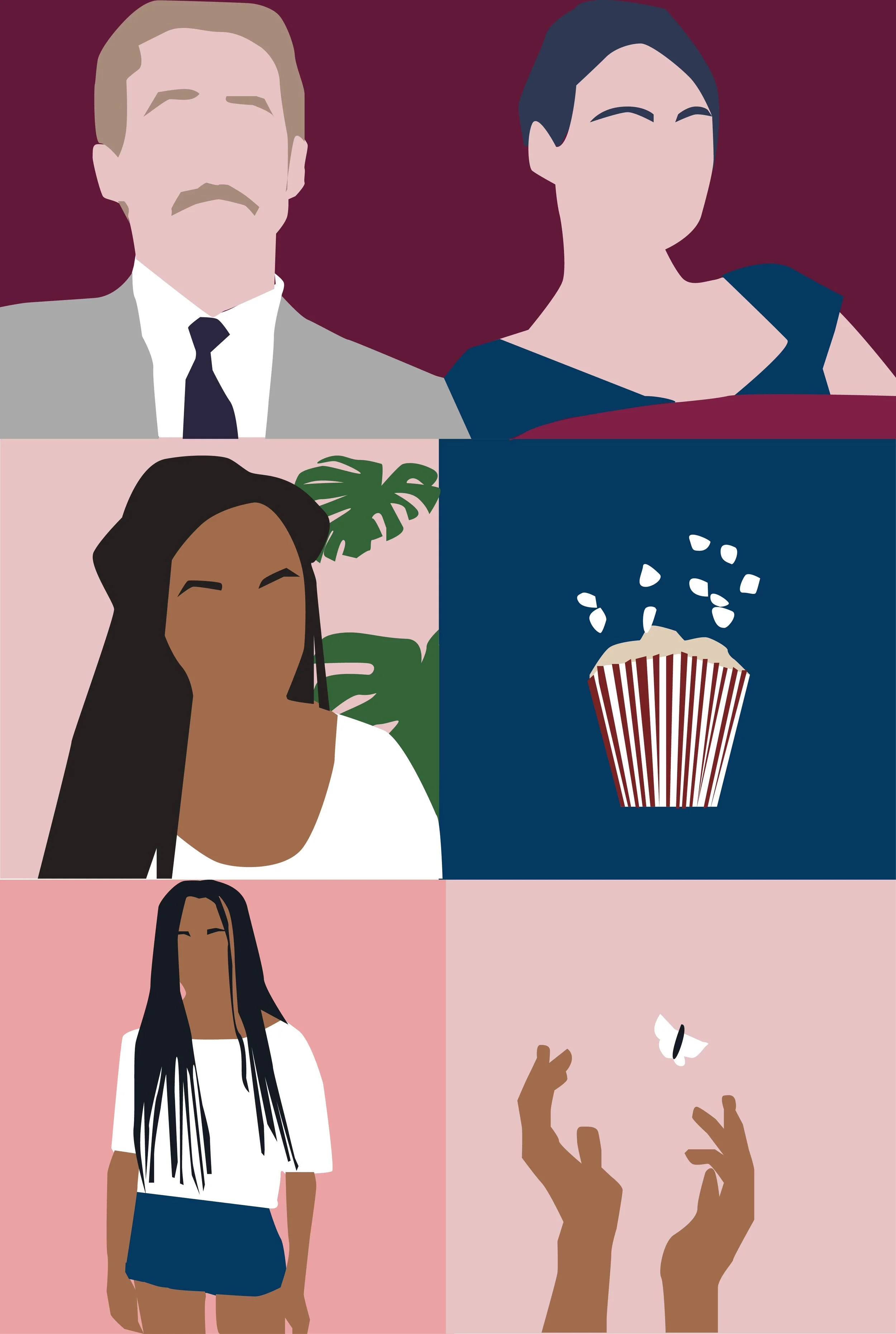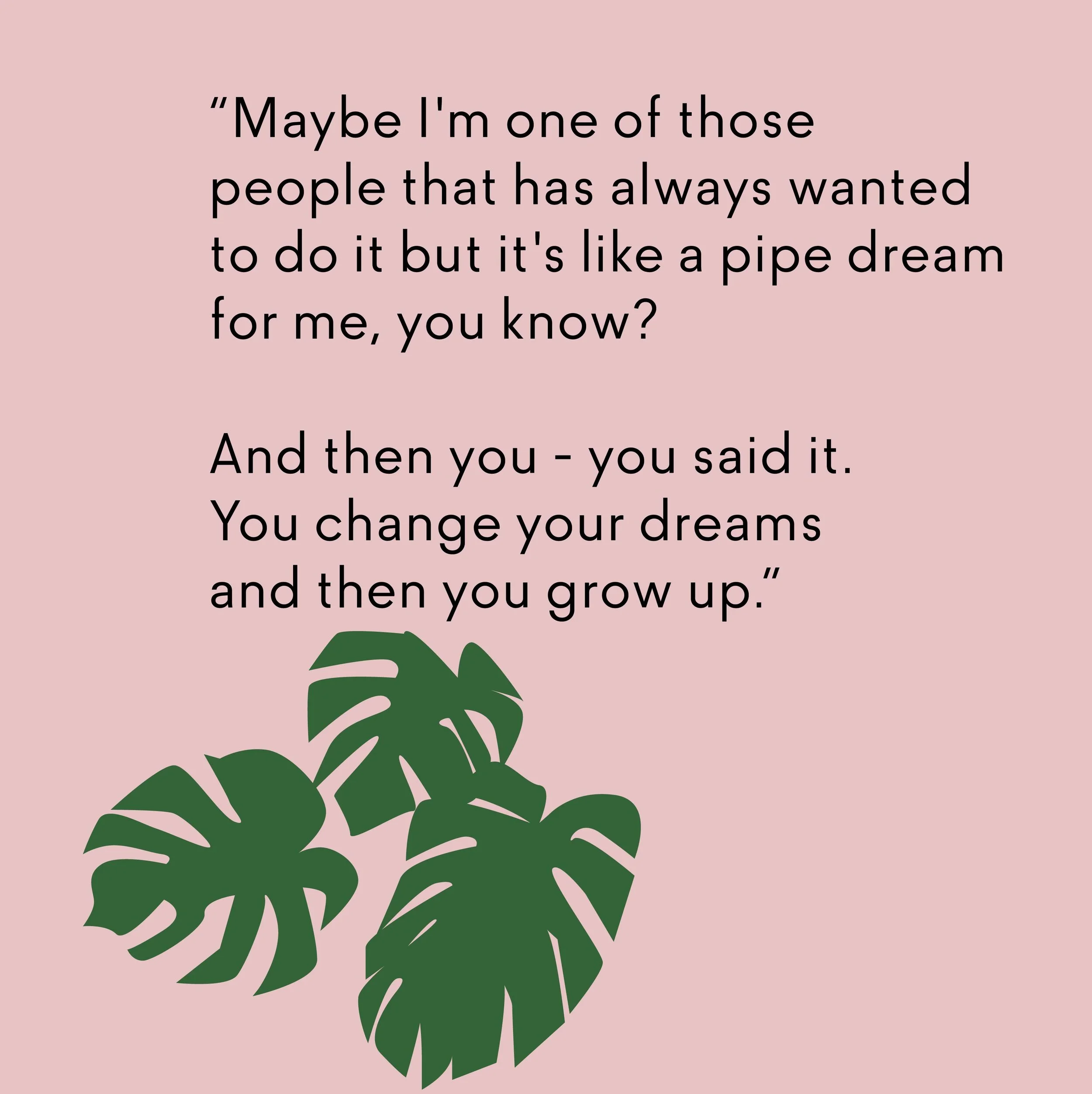A Note for the Suppressed Creative
Being the child of immigrant parents makes pursuing a career in the creative industries tough. So we ask: is going for it just a pipe dream?
I burst into silent tears when I went to see La La Land not because it was fantastic, because – let’s be clear – it wasn’t. It was a sycophantic, self-congratulating ode to the ‘shimmer’ of old Hollywood. It was imbued with nostalgia, and it was pretty. That’s all. The spellbinding aesthetics weren’t enough to detract from the tiny issue that sitting through La La Land – in its prolonged nostalgia, is quite the oppressive exercise for those who aren’t white.
As a person of colour, representation in the media is already scarce for me. I am not presented with a vast array of black, female characters that reflect my own experiences in the same way that I would if I were white. Additionally, I can’t afford to look back to a specific time period with rose tinted glasses, speculating that it could have been ‘better’ for me to exist then. At the height of old school Hollywood, segregation and gross misogyny were still very real and legal. Why would I pine for a time when my desire for civil rights was both a fantasy and complete transgression? But, I digress.
“Why would I pine for a time when my desire for civil rights was both a fantasy and complete transgression?”
Why did a film that I felt such apathy towards provoke such a sudden, and overwhelming emotional response in me? There’s a scene where Emma Stone’s character, Mia, has pretty much given up on her dream of becoming an actress and moves back home. Sebastian (Gosling) drives to her hometown (even though they have broken up) and tries to convince her to go to one last audition. I think the act is quite sweet actually. Mia, exasperated, tells Sebastian that maybe she’s just “not good enough” to make it. She says:
“Maybe I'm one of those people that has always wanted to do it, but it's like a pipe dream for me, you know? And then you - you said it. You change your dreams and then you grow up.”
And that right there, friends, is exactly where I lost it. You see, at the time that I was watching this film, I was halfway through my stint at drama school. In typical Yolanda fashion, I had decided to do a UCAS application for further training at other drama schools at the last minute (the night before the deadline), and it was a matter of minutes before my time was up. I couldn’t even get my references in time and was still frantically stumbling through the application on my phone in the darkness of the theatre. At that point, I was looking up to the screen, hoping that for a couple of hours at least my anxiety would be anaesthetised and forgotten with a light-hearted modern day musical. However, Emma Stone vocalised my deepest darkest fear: that everything I was doing was all in vain.
I’ve been enamoured by the arts for as long as I can remember. I was always painting, singing, writing, dressing up and making things. To be honest, I was a bit of an extra child. I don’t know how my mum put up with me, but God bless her, she did and she always encouraged my creativity. If I needed a muse for my latest creation, she’d take up the role. If I wanted to enter some far-fetched contest, she’d be the one posting the envelope.
However, education was also always at the forefront. School came first and I think the same can be said for many children in families of colour. For many immigrants, the move to countries like England or America was in the hope of a better life. Such places offered the promise of more opportunities for their children, and that began with a higher quality of education. My parents often remarked that they didn’t want me to struggle the way they did. Born in rural areas with no real prospects, they weathered poverty that seems a lifetime away from my own comprehension. Although their schooling ultimately allowed them to leave their country, starting afresh in a foreign land with nothing meant that they had to strive incredibly hard to just survive. According to my parents, if I applied myself in school, and ultimately landed an intellectual job, I would never have to labour the way they did. Education was the golden ticket to the opportunities that they had dreamed of for me. Much to their despair, while I excelled as a student, I wasn’t going to let the arts go anytime soon either.
“The problem is that for many parents like mine, creativity was a pastime but never a job.”
The problem is that for many parents like mine, creativity was a pastime but never a job. It wasn’t a hobby, but rather a product of necessity. Whenever I went back home , I saw countless children running around with the most beautiful handmade toys crafted from scrap material because their parents couldn’t afford to buy them shiny new ones. Wherever I went, a faint melody drifted in the distance, as music was borne from time spent with family and friends. . It was also a form of communicating and passing on stories. However, it was hardly considered to be a viable career path to pursue. In the case of my parents, a creative talent was not something to be cultivated for anything more than fun, nor was it a craft that required time and dedication, because it wasn’t lucrative. When I told them that I wanted to be an actress, they told me that it was something I could do in my spare time.
I gathered up all my courage to tell them I wanted to go to drama school when I got my A-level results and was quickly laughed off. So instead, I was filling out UCAS applications for Russell group universities and before I knew it, I had graduated. But that compulsion to be creative never went away. In fact, although I have no regrets about my educational choices, I realised that relegating acting to just a hobby was nowhere near enough for me. I wanted a career that allowed me to express my creativity in fullness, but I had no idea what that looked like or where to begin. Moreover, I was petrified.
When you grow up being praised for your scholastic accolades, it’s difficult not to place your self-worth in them. You oscillate between being proud of your academic achievements and weirdly being risk averse. Any activity that may bring your intelligence to question unconsciously fills you with anxiety. Additionally, when you are constantly told that your creative skills are great, but should be side-lined, you begin to wonder if you are actually any good at them. I thought that I must suck at acting, because why else would my parents keep dissuading me from it? It was a small muffled voice at the back of my head, a tiny little question that I almost couldn’t hear and definitely couldn’t vocalise, but in hindsight, it was there. I felt that I didn’t have their support when it came to pursuing acting and it made me feel like maybe I was doing something wrong. After all, they knew a good deal more than me and only had my best intentions at heart.
“When you grow up being praised for your scholastic accolades, it’s difficult not to place your self-worth in them”
It is true that your parents want the best for you, but they can’t live your life. Their frames of reference are drastically different from yours. The impetus that finally pushed me to go to drama school was the potential threat of looking back on my life and feeling regret and then, resentment. Or looking back and wondering what could have happened “if”. Both ideas fill me with dread.
Who knows, though, maybe I do actually suck as an actress; maybe it’s not my calling. That thought reverberated so loudly in my head throughout that pivotal scene in La La Land that no quaint little musical number thereafter could drown it out. I’m still grappling with it all the more violently now, but I’m also still going. I imagine my parents don’t understand why I continue to throw myself into an industry that offers me no stability – financially, mentally or emotionally. Sometimes, I even question why I do it. It always comes back though to the simple fact that I love it. That’s why that damn scene roused me so much.
So fellow creatives, allow me to spur you on, especially if you’re from an immigrant family like mine. Keep creating; your voice is original because it’s yours. Don’t allow other people’s perception of how your life should be to dictate how it will be.
In the words of Sebastian:
“This is the dream! It's conflict and it's compromise, and it's very, very exciting!”
Ok, it’s super corny, but it is kind of true.
Like this article? Order Issue 02 of Roundtable Journal for more delicious content.




